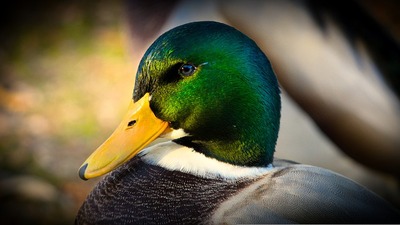Wisconsin Waterfowl Hunters Should Cautious of Avian Influenza
Monday, September 26th, 2022 -- 12:00 PM

With the start of multiple waterfowl seasons and the fall bird migration ramping up, the Wisconsin Department of Natural Resources asks hunters to follow simple precautions when harvesting and handling wild birds because of the presence of highly pathogenic avian influenza in the state.
The current HPAI strain was first detected in Wisconsin and other midwestern states in March 2022. Recent findings of the virus in domestic and wild birds this fall illustrates that the virus is still present and circulating in the flyway, including in Wisconsin. Waterfowl are considered more susceptible to HPAI than other gamebirds, so hunters are advised to follow the precautions listed below.
The U.S. Fish and Wildlife Service makes the following recommendations for hunters when handling wild game to prevent possible exposure to HPAI or other potential pathogens:
Do not handle or eat sick game;
Field dress and prepare game outdoors or in a well-ventilated area;
Wear rubber or disposable latex gloves while handling and cleaning game;
When finished handling game, wash hands thoroughly with soap or disinfectant;
Clean knives, equipment and surfaces that came in contact with game;
Do not eat, drink or smoke while handling animals;
All game should be thoroughly cooked to an internal temperature of 165°F before being consumed.
The DNR also asks hunters to be mindful that the virus may be transported via hunting equipment and clothing. For hunters who have backyard poultry, basic biosecurity measures are recommended.
According to the U.S. Centers for Disease Control and Prevention, this strain of HPAI does not present an immediate public health concern. Properly handling and cooking harvested birds to an internal temperature of 165°F kills the virus.
Anyone with questions about how avian flu affects humans can find information at the Wisconsin Department of Health Services website. Anyone who observes sick or dead birds should minimize contact with them.
Do not touch dead birds or wildlife with your bare hands. If you have to touch a dead bird, wear gloves or use a plastic bag to put it in the garbage. Wash your hands with soap and water after handling and throw away any gloves.
More information on Avian influenza viruses, the current situation and recommended protocols for suspected cases can be found on the DNR website’s wildlife diseases webpage under the avian influenza tab.
The DNR will continue to update this page with future HPAI findings in wild Wisconsin birds. More information on the nationwide distribution of this HPAI virus is available on the U.S. Geological Survey’s website.
Feel free to contact us with questions and/or comments.




